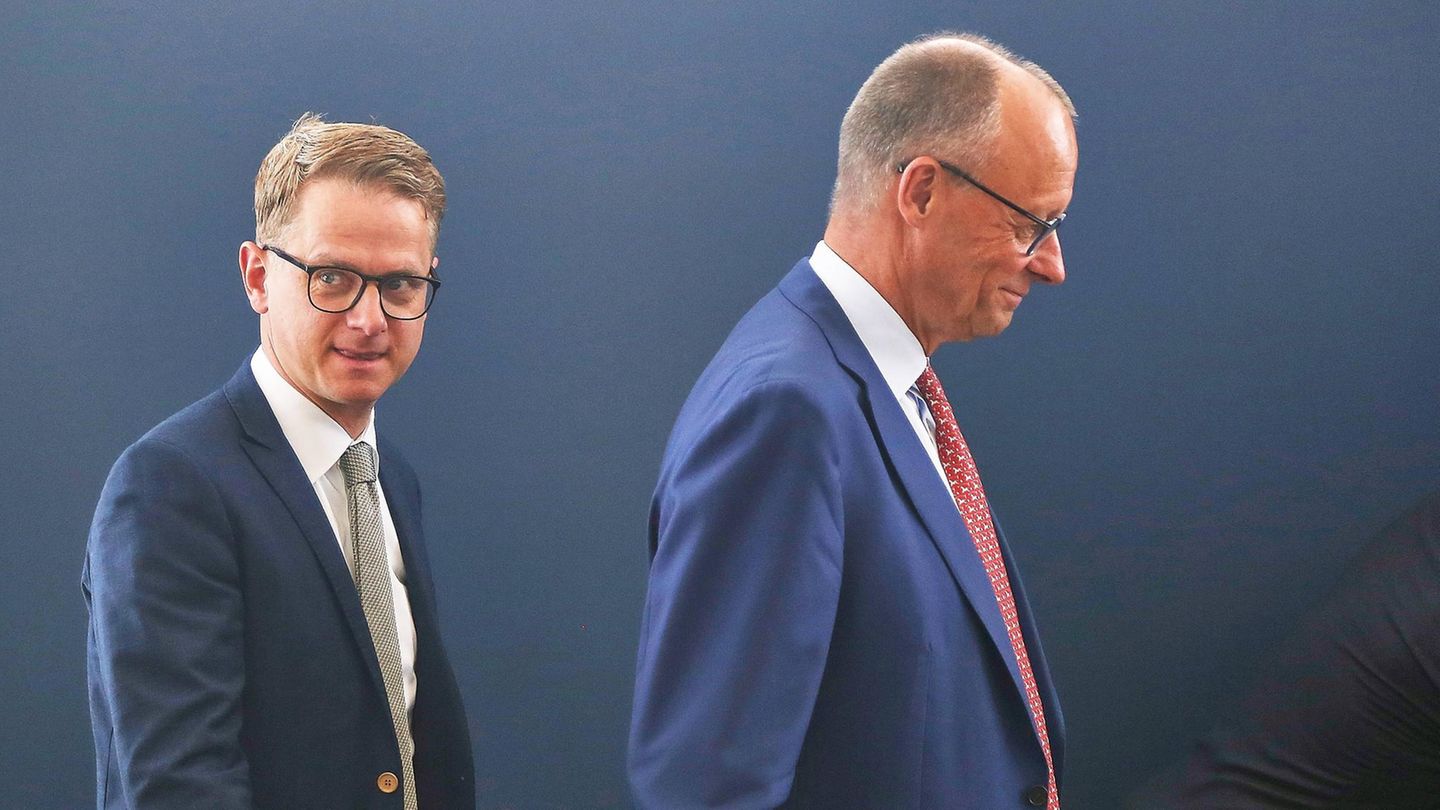The finance minister needs to have new discussions about the budget. Now he must take responsibility, say his coalition partners. Is the timetable for drawing up the budget still manageable?
The drama surrounding the 2025 federal budget is entering another round – and it threatens to become another acid test for the traffic light coalition. After Finance Minister Christian Lindner (FDP) announced a need for new talks, his coalition partners SPD and Greens sharply criticized the approach. The fact that the FDP leader made his assessment without any coordination in the government and published it on the day of the major prisoner exchange, “that is reckless and, for me, exceeds the limits of what is tolerable in a coalition,” said SPD leader Saskia Esken on the sidelines of her summer trip to Thuringia.
The background to this is the review of several projects with which Chancellor Olaf Scholz (SPD), Vice Chancellor Robert Habeck (Greens) and Lindner actually wanted to reduce the financing gap in next year’s budget by eight billion euros. Two reports had raised legal and economic doubts about the projects – especially about the plan to use unused funds from the KfW development bank from the time of the gas price caps for other purposes in the budget.
SPD: Lindner’s assessment “idiosyncratic”
From the perspective of the Finance Ministry, austerity measures must now be negotiated again. “Further discussions within the federal government and in the context of parliamentary deliberations are necessary,” said his ministry. Lindner’s office also brought cuts in social spending back into the discussion.
Esken stressed that the assessment of the reports was “idiosyncratic even from a technical point of view”. SPD parliamentary group leader Rolf Mützenich made a similar statement in the “Süddeutsche Zeitung”. Although the main legal report essentially considers loan models for the railway and the motorway company to be possible, the Finance Ministry is of the opinion that constitutional doubts outweigh the doubts. “If there are purely technical reasons for this opinion, then these questions must be clarified within the federal government without public fuss. Anything else leads to uncertainty and creates the impression that games are being played here that do not do justice to the seriousness of the situation,” said Mützenich.
Greens criticize “head-in-the-sand policy”
The parliamentary group leader also opposed the idea of shifting the budget problem from the government to parliament. “In the past, some department heads have developed an attitude of handing over problems and inconsistencies to the Bundestag without wanting to take responsibility themselves,” said Mützenich. “I therefore expect the government to come to a competent and consensual decision on the new budget.”
Green Party deputy Andreas Audretsch accused Lindner of a “head-in-the-sand policy”. “A finance minister cannot just reject proposals, he must develop solutions,” he stressed. But these must not come at the expense of social cohesion or climate protection. With the Greens, there will be no austerity measures here.
Budget schedule in danger?
In view of the new turbulence, the opposition brought up the possibility of postponing the budget discussions in the Bundestag. “The government must show how it intends to plug the 17 billion hole by August 16,” said the Union’s chief budget officer, Christian Haase, to the “Rheinische Post”. “Otherwise the budget discussions will have to be postponed.” The draft was actually supposed to be forwarded to the Bundestag in mid-August, as parliamentarians need several weeks to work through the extensive figures before a Bundestag debate.
BSW founder Sahra Wagenknecht also stressed that the budget week in the Bundestag could not be maintained. “Of course, the entire budget must now be put back on the table and renegotiated,” she told the German Press Agency. “It would be the next disrespect for parliament to go into the budget week with these dubious figures.” Instead of cutting pensions and sensible investments, a mid-double-digit billion amount should be saved through peace negotiations in Ukraine, a significant reduction in the number of asylum seekers and a reversal of the heating law.
The Left Party also warned the traffic light coalition against cuts in the social sector – but suggested a different source of money. “The reintroduction of the wealth tax would bring the states additional billions for social welfare and investments in the future, appropriate taxation of excess profits and the closing of tax loopholes would bring billions in revenue to the federal government,” party leader Janine Wissler told the newspapers of the Funke media group.
Source: Stern
I have been working in the news industry for over 6 years, first as a reporter and now as an editor. I have covered politics extensively, and my work has appeared in major newspapers and online news outlets around the world. In addition to my writing, I also contribute regularly to 24 Hours World.




